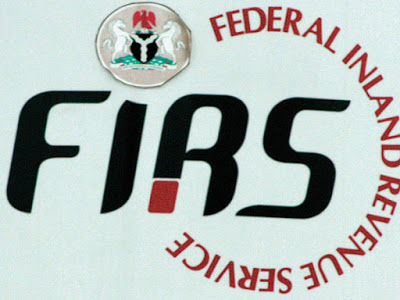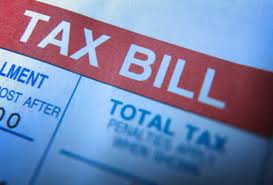
by Legalnaija | Apr 19, 2021 | Uncategorized
Introduction
The Federal Inland Revenue Service (“FIRS”), in a Public Notice on the Deployment of Automated Tax Administration Solution (“the Notice”) published in the Nation Newspaper of March 31, 2021, gave notice to all taxable persons[1] and the general public of the FIRS’ intention to connect its Automated Tax Administration System (“ATAS”) to access the data[2] of taxable persons stored in any electronic device maintained by any relevant person(s) or their agents[3], for tax purposes, not earlier than 30 days of the date of publication of the Notice.
The implication of the foregoing is that banks, employers, service providers and all other entities, companies or organizations in possession of the financial information of taxable persons in Nigeria must grant the FIRS access to such information or risk the penalties stated in Section 26(3) of the Federal Inland Revenue Service (Establishment) Act (“the FIRS Act”).
A corollary to this, however, may be a possible breach of the data protection/privacy obligations owed by these “relevant persons” to the taxable persons.
This paper seeks to examine dicey issues emanating from the Notice vis-à-vis the extant data protection/privacy laws in Nigeria.
Data Protection Regime in Nigeria
While there are a number of laws regulating data protection in Nigeria, the Nigeria Data Protection Regulation, 2019 (“the NDPR”) is the most comprehensive legislation on the subject. In May 2020, the National Information Technology Development Agency (“NITDA”) issued the Guidelines for the Management of Personal Data by Public Institutions in Nigeria, 2020 (“the Guidelines”) which, amongst other things, regulates the sharing of personal data[4] between public institutions or between private institutions and public institutions. The Guidelines is the focus of this paper.
Prefatorily, it is to be noted that the NDPR protects only the personal data of natural persons. In that context therefore, companies, trustees, business names and other organizations not being natural persons are not protected by the NDPR and by extension, the Guidelines. However, they also form the basis of this discourse given that they control the personal data of data subjects who are affected by the Notice.
Sharing of personal data under the Guidelines
The Guidelines permits private institutions to share personal data of interest in their possession with Public Institutions upon request[5] and insofar as the provisions of the Guidelines are satisfied. Some of the specific requirements for the validity of such request are that the request must be signed by the Chief Executive Officer of the Public Institution, state clearly the purposes for which the informationis sought from the private institution, provide evidence of the digitalization of the database of the Public Institution and upon an undertaking provided by the Public Institution that it shall protect the information from unauthorized third parties and shall not deanonymize the information shared.[6]
Further, Paragraph 2.6 of the Guidelines mandates Public Institutions desirous of obtaining personal data from private institutions to demonstrate compliance with international information security standards such as ISO 27001:2013, compliance with the NDPR, conduct a Data Protection Impact Assessment and retain the services of a Data Protection Compliance Organization.However, the FIRS is not on NITDA’s list of compliant organizations raising the presumption that it is not NDPR compliant.[7]
What is more, Paragraph 5(b) of the Guidelines mandates private institutions to which a request is made to evaluate same with a view to ensuring that it complies with the NDPR and to seek NITDA’s clarifications where it is unable to ascertain the propriety of the request. However,paragraph 5(d) seems to negate paragraph 5(b) by stating that the latter paragraph shall not apply where the request is aimed at the enforcement of law. Thus, given that the Notice relates to the enforcement of the FIRS Act, private institutions may be required to comply with the Notice.[8]More so, the NDPR permits the processing or disclosure of personal data where such disclosure is statutorily required or is expressly required by a regulatory body, such as the FIRS.
Conduct of a Data Protection Impact Assessment
One important consideration for the FIRS is to ensure that it conducts a Data Protection Impact Assessment (“DPIA”) before it deploys its ATAS, as planned. The importance cannot be overstated. This is driven by the fact that, by deploying its ATAS, the FIRS assumes the role of a data controller to data controllers as they will have access and control of data hitherto controlled by companies and other relevant data controllers. This invariably will put the data of all Nigerians in the control of the FIRS. By Paragraph 1(viii) of the Nigeria Data Protection Regulation, 2019: Implementation Framework, 2020 (“the Implementation Framework), data controllers must conduct a DPIA where they intend to embark on a new activity particularly one that will involve an intense use of personal data.
Given that the data sought to be accessed by the FIRS was initially supplied to the “relevant persons” for purposes other than as now required by the FIRS, it is suggested that both the FIRS and the relevant persons (as data controllers) should collaborate to ensure compliance with Paragraph 4.1 of the Implementation Framework.
It is further suggested that NITDA should exercise its powers under Paragraph 4.2 of the Implementation Framework to request the FIRS to submit its DPIA with respect to the planned deployment of its ATAS.
Compliance with the Notice
Any sharing of personal data with a Public Institutions is required to be by encrypted means or other methods which obscure such data.[9]
In light of the FIRS’ Notice under consideration, relevant persons to which the Notice relates may, as a preliminary step, seek assurance from the FIRS with regards to the matters in Paragraphs 2.6, 4 and 6 of the Guidelines[10] and/or may seek advice from NITDA on whether or not to comply with the Notice.
Where this done, the relevant persons/data controllers should isolate the data sought by the FIRS into an encrypted database to which the ATAS may be connected.[11] Taking these steps is precautionary on the data controllers who thus, have given themselves a good defence in the event of breach of their data as a result of the FIRS’s processing of their personal data.
Upon compliance with the Notice, data controllers are required to provide NITDA with details of the nature of personal data of data subjects to which they have given the FIRS access to in line with Paragraph 5(c) of the Guidelines.
REFERENCES
[1]Which includes individuals, trustees, partnerships, companies, corporations, etc
[2] Which shall include information of taxable persons related to Point of Sale Terminals and other invoicing platforms used by taxable persons
[3] Relevant persons in this regard contemplates the data controllers of the data sought to be connected to the ATAS who by the Notice are also required to grant the FIRS access to all its electronic devices used to store the personal data of taxable persons.
[4] Personal data means any information which of itself or when combined with other information, can be used to identify a specific natural person (“data subject”). In this context, personal data may range from names, email address, location, tax identification number, financial records, name of employer, etc. of data subjects.
[5]In this regard, does the FIRS Notice qualify as a request? This question begs for an answer
[6] See paragraphs 4 and 6 of the Guidelines.
[7]Although this may be attributable to the fact that NITDA’s list of complaint Organizations is yet to be updated
[8]This is however a most curious case. Where the presumption that the FIRS is not NDPR compliant is true, should private institutions go ahead to comply with the Notice? Has the FIRS conducted a data protection impact assessment on the planned connection of its ATAS to the servers of private institutions? If the only ‘request’ made by the FIRS is the Notice, then the request cannot be said to have complied with the Guidelines as, aside mandating private institutions to give it access to their servers, it makes none of the assurances required by the Guidelines and neither does it demonstrate that FIRS’ compliance with paragraphs 2, 3, 4 and 6 of the Guidelines.
[9]paragraph 4 (b) and (c) of the Guidelines prohibits the sharing of databases by private institutions with Public Institutions by means other than encrypted or other formats which murks such data.
[10]As well as seek information on FIRS’ data protection policies and its compliance with the NDPR
[11] Although not specifically required by either the Notice or the Guidelines, ethics dictates that the data made available to the FIRS should as much as is possible, be accurate.
 Abraham is an Associate at the Firm of Solola & Akpana. He is a member of the Firm’s Data Protection Compliance and Dispute Resolution Practice Groups. He is also a member of the Firm’s Corporate/Commercial Practice Group providing a wide range of legal representation and advice to a broad spectrum of clients in the Oil and Gas, Banking/Finance, Fintech and private sectors on various transactions and regulatory compliance.
Abraham is an Associate at the Firm of Solola & Akpana. He is a member of the Firm’s Data Protection Compliance and Dispute Resolution Practice Groups. He is also a member of the Firm’s Corporate/Commercial Practice Group providing a wide range of legal representation and advice to a broad spectrum of clients in the Oil and Gas, Banking/Finance, Fintech and private sectors on various transactions and regulatory compliance.
He has several articles on data protection/privacy law, international law and Intellectual Property Law published in his name and has routinely audited and filed data audit reports on behalf of several multinational and national companies in Nigeria, to NITDA.
He obtained his LL.B from Ambrose Alli University, Ekpoma and was called to the Nigerian Bar in 2019. He also holds a certification in Data Protection.
Abraham particularly has data protection, intellectual property, sports/entertainment law and fintech as his niche whilst also excelling in dispute resolution.
Reach Abraham at abrahamaigba@gmail.com; 08131993172

by Legalnaija | Oct 9, 2017 | Uncategorized
The Lagos State Internal Revenue Service
(LIRS) recently issued a public notice (the Notice) with respect to taxation
of interest benefits accruing to employees on loans granted by employers.
Why tax it?
The Notice aims at addressing arrangements
where loans are granted to employees at no interest or interest rates lower
than market rates. LIRS posited that such arrangements give rise to
a benefit which is taxable in the hands of employees.
Consequently, employers are
required to deduct tax on such interest benefits accruing to employees and
remit same to LIRS under the pay-as-you-earn (PAYE) scheme.
How it will be calculated
The benefit is calculated as the difference
between actual interest rate and adjusted monetary policy rate (MPR) on
the outstanding loans granted to employees. The adjusted MPR is currently 11%,
which is the prevailing MPR (i.e. 14%) minus 3%.
LIRS cited reliance on Section 3(1)(b) of Personal Income Tax Act (PITA), which
imposes tax on all gains or profits from employment including compensations,
bonuses, premiums, benefits or other perquisites, as basis for its position.
Other highlights of the Notice
include:
• Assessment of tax on the interest benefit
to be done by employer in line with the loan repayment plan i.e. assessment to
be made monthly where payment is made on monthly basis and annually, where
payment is made on annual basis
• Requirement for employers to file a schedule showing information
on employee loans and payments terms along with their annual
returns
• The directive applies to shareholders, directors and employees of a company
and will continue to apply after the relationship with the company has been
terminated, until the loan is fully repaid.
We explain
It appears LIRS has likened the interest
benefits enjoyed by employees to benefit-in-kind, which constitute taxable
income.
LIRS has not indicated if the directive
will be applied retrospectively or take effect from the date of the Notice.
Further clarification on the effective date is therefore expected to be
provided by LIRS.
The above notwithstanding, we advise
employers and other stakeholders to take note of LIRS’ directive and ensure
compliance.

by Legalnaija | Oct 8, 2015 | Uncategorized
 |
| Credits – Nigerianbestforum.com |
Tax avoidance and evasion
have become the culture of some individuals and businesses operating in
Nigeria.One of the latest indexes, “Paying Taxes 2015”, which compares tax
systems across the world, ranked Nigeria the 3rd worst globally in
tax compliance. The assessment is based on three major indicators; total tax
rate, number of payments and compliance time.
The survey reveals that it
takes the Nigerian taxpayer an average of 908 hours to comply, followed by
Bolivia about 1,025 hours, and the worst being Brazil- about 2,600 hours. Out
of the 189 economies, Nigeria –Africa’s largest economy by GDP size, ranks low
at 179 with total tax rate at 32.7 percent.
With the decline of oil
revenues and the uproar for alternative sources of revenue and poor global
ranking of Nigeria’s tax compliance, The Federal Inland Revenue Service
(“FIRS”) must embrace the Presumptive Income Tax Assessment (“PITA”) into the
Nigerian tax system.
What is the Presumptive
Income Tax Assessment?
Presumptive tax can be
traced to Milan, as early as the 17th century when the value of land was used
to estimate tax instead of the actual production from that land. This
stimulated increased production on the land because taxpayers wanted to
maximise production so as to beat the system.
Presumptive income
taxation is primarily used in economies where ‘hard-to-tax’ taxpayers comprise
the majority of the population and administrative resources are scarce. In
these societies, most taxpayers lack integrity or financial transparency that
allows for effective taxation by the relevant tax authority. The result is that
governments estimate or presume the appropriate income on which taxes should be
levied.
In Ehtisham Ahmad&
Nicholas Stern‘s “The theory & practice of Tax reforms in developing
countries” 276 (1991) defines Presumption Tax system as the use of indirect
means to ascertain tax liability which differs from the usual rules based on
the taxpayers account.
The tax payer captured
under this regime are the ones who are hard to assess because they earn low
incomes; they sell their goods and offer services largely for cash which makes
it impossible to apply withholding tax; they are compelled by non-tax reasons
to keep books of accounts and their number is too great which renders it
impossible to intensively scrutinize a reasonable fraction of them, they could
be mostly classified in the informal sector. This makes it easy for such a
tax-payer to conceal their incomes.
Presumptive tax system
must conform with the five major canons of a good tax system. These include;
certainty, Economy, convenience, fairness/equity and simplicity.
Many scholars try to
derive the legality of presumptive tax system from the provisions of Section 65
of the Companies Income Tax Act which empowers the Tax Authority to use the
best of its judgment to assess a company but there is no expressly stated
provisions for the system in any tax regulation or Act in Nigeria.
What do we stand to gain?
·
It simplifies tax administration and
improves compliance by small scale taxpayers.
·
It minimises tax evasion and avoidance.
·
It improves tax assessment.
·
It minimises the adverse effects of
progressive taxation.
Likely challenges?
·
Potential Taxpayers might not be willing to pay presumptive tax
because they think they pay many more other taxes and levies such as toll gate
fees, and other.
· Potential taxpayers “associations” need to
be involved in the process of coming up with tax levels for purpose than if the
tax rates are imposed on them.
·
The usual taxpayers may result to
presumptive tax because the costs of maintaining proper books of accounts from
which to base normal income tax would be very high and so presumptive taxation
is a cheaper option.
CONCLUSION
Presumptive taxation is undoubtedly a way of curbing
widespread tax avoidance without employing excessive government resources
because it addresses the concerns of both the taxpayer and the tax authority.
The chances of the system working in Nigeria depends on how the relevant tax
authorities apply it.

by Legalnaija | Jul 24, 2014 | Uncategorized
 |
| Credits: fearlessforlife.com |
Nigeria is a developing economy
and an economy which recently overtook South Africa to become the continent’s
largest economy following the recalculation of GDP and the world’s 26th largest
economy, the economy attracts foreign investors and local investments. An
entrepreneur plays an important role in economic growth and development and
there is an impressive rise in the number of self-employed individuals we have
in the country today, former American President – Ronald Reagan 1986 address to
the White House Conference on Small Business said, “the government’s view of
the economy could be summed up in a few short phrases: If it moves, tax it” as
the economy is moving its crystal clear the government will become stricter
with tax policies. Most entrepreneurs or intending entrepreneurs do not know
the basics of taxation have regards starting business in the country and will
be found wanting by the law.
Registration of business with
Federal Board of Inland Revenue Department of the Ministry of Finance for
income tax and VAT.
(FIRS) requires that an applicant
who seeks registration for Income tax and VAT completes tax registration forms
for corporate income tax registration as well as VAT. The applicant submits an
application letter to the tax authority for a tax clearance certificate and,
for income tax purposes, registers at the integrated tax office. The
registration process requires submitting a completed tax office–issued
application (taxpayer registration input form, TRIF/2006/001 COYS) and the following
documents:
1) Completed FIRS questionnaire
2) Memorandum and articles of association
(copy)
3) Certificate of incorporation (copy)
4) Directors’ names and addresses
5) Tax advisor’s name and address
6)
Letter of appointment of a tax adviser and corresponding letter of
acceptance
7) The date the company commenced business
And for larger companies:
i) Names, addresses and mobile numbers of
major promoters and the chairman of the company, including their email
addresses
ii) Other sources of income of the chairman
and the promoters of the company
iii) Name and addresses of the principal
officers of the company including the chairman, managing director, legal
adviser and accountant
To register, the company must
submit the taxpayer registration input form in triplicate, and the original
certificate of incorporation must be presented for review by the controller.
Upon the completed taxpayer registration input form and all other documents
being received, a tax reference number is allocated. An application must be
filed for the tax clearance certificate; its issuance is not automatic.
There are Fee schedule for tax
clearance certificate:
• Registration within 6 months of
incorporation: no cost will be incurred on this.
• Registration after 6 months of incorporation
this will attract:
1. A pre-operation levy of NGN 20,000 for first-year
requests and NGN 25,000 for each subsequent year request, until the company
files a notice of commencement of business as per amendment to section 29 of
the Companies’ Income Tax Act No. 11 of 2007.
2. Companies that register after the start of operations
must file a set of audited accounts. TCC is issued based on tax paid for 3
years. If the position is at a loss, the TCC will be issued to reflect the
position.
Companies required to register for VAT
complete the VAT registration form VAT Form 001, which is obtainable free of
charge from all FIRS offices and return it to the integrated tax office, which
will issue a taxpayer identification number . Companies required to register
for VAT must do so within 6 months from the date of starting business
operations. Since the registration for corporate income
tax and VAT are done in the same place; 1 Tax Identification Number (TIN) is
issued to companies for all federal taxes.
Registration of personal income tax PAYE at
the State Tax Office
Employers shall register with the relevant
state tax authority for income tax withholding. Once the application is filed,
with a copy of the certificate of incorporation attached, a reference file is
opened for the company. It is safer to adhere to the law
than face its wrath, and adequate compliance to the tax authorities puts the
mind of an entrepreneur at rest.
BY: Sogo Akinola
Sogo Akinola
Nathan(sogoakinola@gbc-law.com) is a young commercial lawyer at Gbenga Biobaku
and co. He specializes in Taxation, oil and gas law and intellectual property.
He is a graduate of obafemi awolowo university and the Nigerian law school
lagos campus. He is a member of the Nigerian bar association and a member of
the Young International Arbitration Group and also an intending associate
member of the Chartered Institute of Taxation of Nigeria.

 Abraham is an Associate at the Firm of Solola & Akpana. He is a member of the Firm’s Data Protection Compliance and Dispute Resolution Practice Groups. He is also a member of the Firm’s Corporate/Commercial Practice Group providing a wide range of legal representation and advice to a broad spectrum of clients in the Oil and Gas, Banking/Finance, Fintech and private sectors on various transactions and regulatory compliance.
Abraham is an Associate at the Firm of Solola & Akpana. He is a member of the Firm’s Data Protection Compliance and Dispute Resolution Practice Groups. He is also a member of the Firm’s Corporate/Commercial Practice Group providing a wide range of legal representation and advice to a broad spectrum of clients in the Oil and Gas, Banking/Finance, Fintech and private sectors on various transactions and regulatory compliance.



